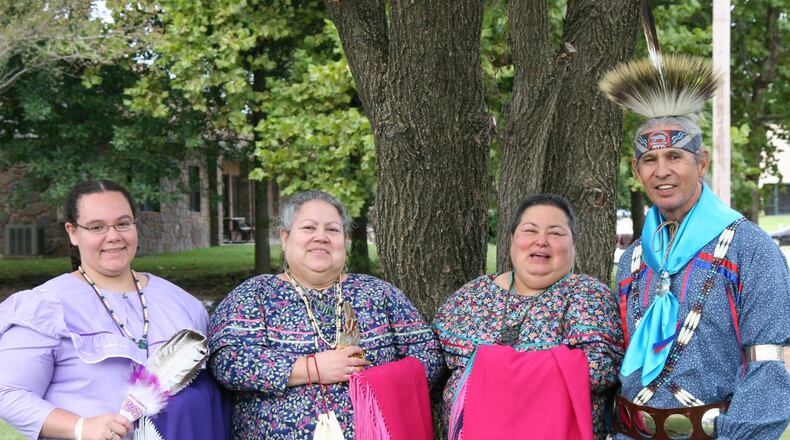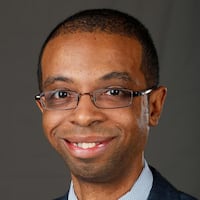“They tell a version of Ohio history that’s been often overlooked and misunderstood in the nearly 200 years since their nations were forcibly relocated,” organizers stated in a news release. “Indigenous scholars and historical researchers explain how generations of broken treaties and deadly conflict with settlers, traders, and colonists led to the forced relocation of their communities so their land could be sold and settled. The series also shows how Indigenous people today are reviving their languages, renewing their cultures, and reconnecting with people, places, and governments in Ohio.”
Credit: Ruthie Herman/WYSO
Credit: Ruthie Herman/WYSO
Podcast subjects include:
- Jeremy Turner, a citizen of the Shawnee Tribe of Oklahoma and an Indiana farmer, and Eastern Shawnee citizen Talon Silverhorn, who also is an employee at the Ohio Department of Natural Resources. Turner and Silverhorn are professional historical interpreters, and they describe the seasonal Shawnee hunting, farming, and maple sugaring practices that sustained their people and the land in the Ohio River Valley for thousands of years —until the disruption brought by European raders, settlers, and colonists. They also talk about how those practices could be used today.
- Dr. Mary Stockwell, Ohio historian and author of “The Other Trail of Tears,” talks about the deadly removal of Shawnee, Miami, Wyandotte, and other people from Ohio as a result of the Indian Removal Act of 1830.
- The Miami Tribe of Oklahoma’s annual Winter Gathering, marking the 50th anniversary of the tribe’s educational partnership with Miami University.
- The opening of Great Council State Park in Greene County near Xenia. It was built in collaboration with the three federally recognized Shawnee tribes and is intended to more accurately represent modern-day Shawnee people and their history in the Ohio Valley.
Organizers regard the podcast as an eye-opening endeavor intended to educate and enlighten.
“‘The Ohio Country’ podcast explains Ohio history in a broader, more inclusive way, by centering the voices of the Shawnee, Miami, Wyandotte and other tribes whose homelands are in what we now call Ohio,” said Neenah Ellis, former executive director of the Eichelberger Center for Community Voices at WYSO in Yellow Springs. “This story is complicated and fascinating and, at times difficult, and will make you wonder if you really knew Ohio history at all.”
Credit: Ruthie Herman/WYSO
Credit: Ruthie Herman/WYSO
“The Ohio Country,” conceived by Ellis in 2021 and co-produced with Chris Welter, managing editor of the Eichelberger Center, is available on all major podcast platforms and at wyso.org/podcasts.
About the Author




